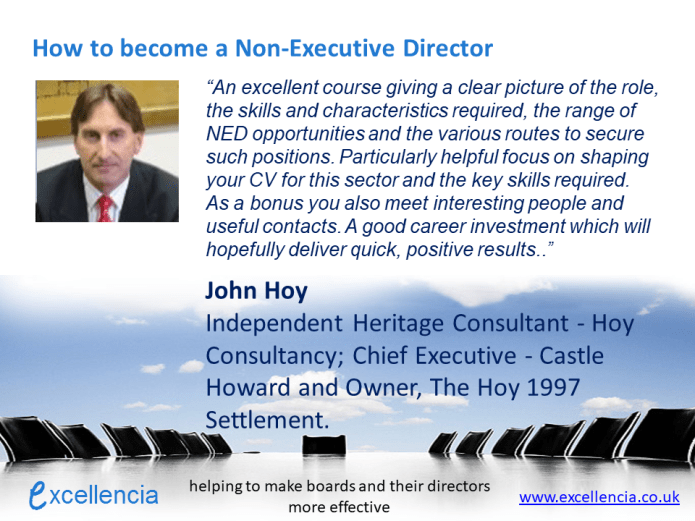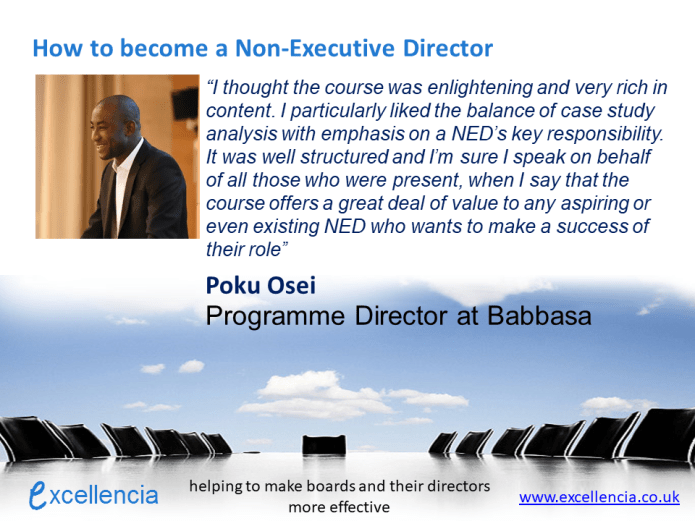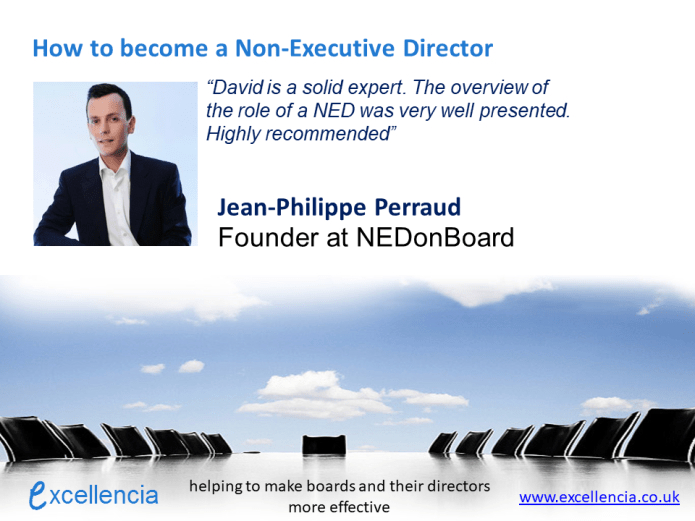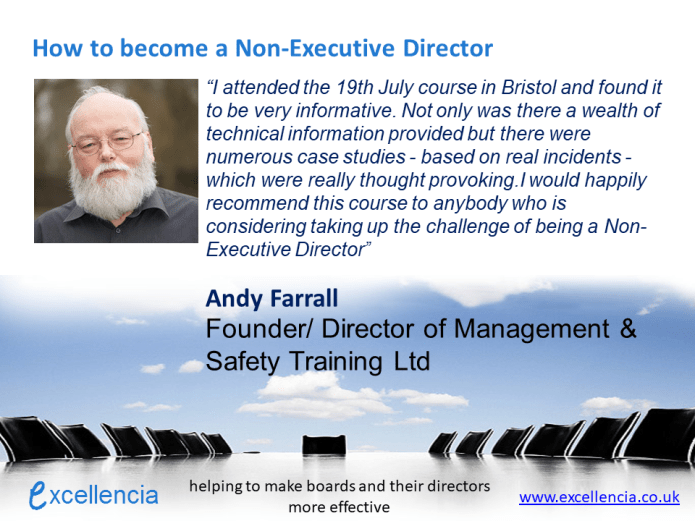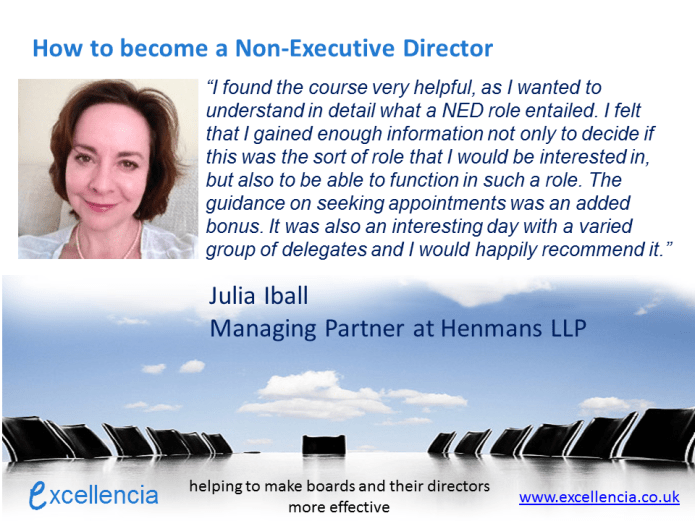
Find out how you can obtain a Non-Executive Director position by booking a place on this interactive 1-day video course.
"This course is a must for any aspiring NED and even established NED's as a refresher. The content and its delivery were well paced, informative and challenging in equal measures, led by a seasoned expert who's capabilities provide a wealth of knowledge to be drawn upon. Incredible value for money and should be part of a suite of courses leading to a more formal qualification for aspiring NED's. 100% recommended, you will not be disappointed."Jon Cross, Managing Director at Essenjay Associates Ltd
The How to become a Non-Executive Director course helps you to plan and prepare for your first NED position. It instils a real sense of what is expected of NEDs, and how you can meet the challenge.

This one-day interactive course is aimed at aspiring NEDs and covers essential knowledge about roles, responsibilities, strategy and corporate governance that are key foundations for a Non-Executive board role. It also considers up to date thinking on corporate governance and the responsibilities of owners, the board and employees.
This is followed by practical sessions on identifying NED opportunities, the process of obtaining a first appointment and performing due diligence before any position is accepted. There is emphasis on the importance of presenting your experiences with clarity and relevance.
This course identifies the various ways and circumstances in which non-executive directors can make an effective contribution to a board's work. It also examines methods for their selection and reviews their motivation, induction and reward.
Who should attend?
Individuals who are currently a non-executive director; those seeking appointment as a non-executive director and those looking to appoint a non-executive director.
What to expect?
- Clarifies how and why non-executive directors can strengthen a board
- Provides practical guidance on how best to secure an appointment as a non-executive director
Course objectives
Participation on this course will provide you with the knowledge to:
- Clarify the board's role, purpose and key tasks
- Appreciate the contributions that non-executive directors can make to the board in different types of company and situations
- Recognise the qualities and experience needed to fulfil a non-executive director appointment
- Appreciate appropriate methods for finding, selecting, appointing and rewarding non-executive directors
- Understand the preparation required to interview for or be interviewed for the post of non-executive director
Course Leader: David Doughty CDir FIoD

Key Details
Duration: 1 day
Location:
Price
£350.00 (ex VAT)
Payment with Booking Price
£320.00 (ex VAT)
NEDworks Tier1 Member Price
£295.00 (ex VAT)
Book Now
To see course dates and to book your place now follow this link:
Course Registration
The fee includes lunch, refreshments and a copy of the course handbook
Attendance counts as 6 CPD hours of structured learning
 I had the pleasure of attending a recent
I had the pleasure of attending a recent  I recently attended David's one day introduction
I recently attended David's one day introduction  Well structured and informative course with plenty of time/room for group discussions. Ideal for anyone looking at NED roles.
Well structured and informative course with plenty of time/room for group discussions. Ideal for anyone looking at NED roles. As an introduction to the world of NED's this course is well structured to give an honest and practical insight in to how to identify and prepare for a move in this direction. Money well spent!
As an introduction to the world of NED's this course is well structured to give an honest and practical insight in to how to identify and prepare for a move in this direction. Money well spent! This course was excellent and greatly exceeded my expectations. The course format is interactive, with small-group teaching in a seminar/workshop format, led by an experienced Chartered Director who generously shared his personal experience
This course was excellent and greatly exceeded my expectations. The course format is interactive, with small-group teaching in a seminar/workshop format, led by an experienced Chartered Director who generously shared his personal experience


